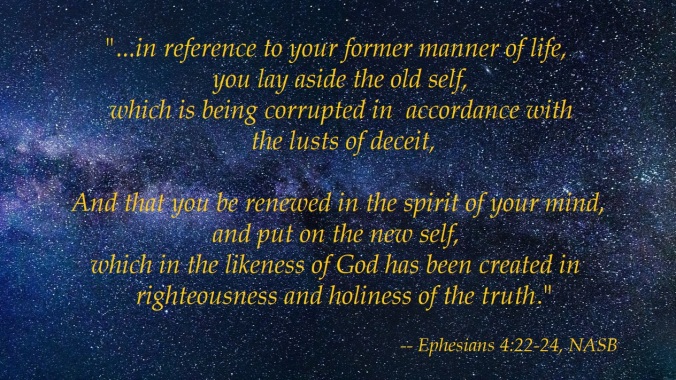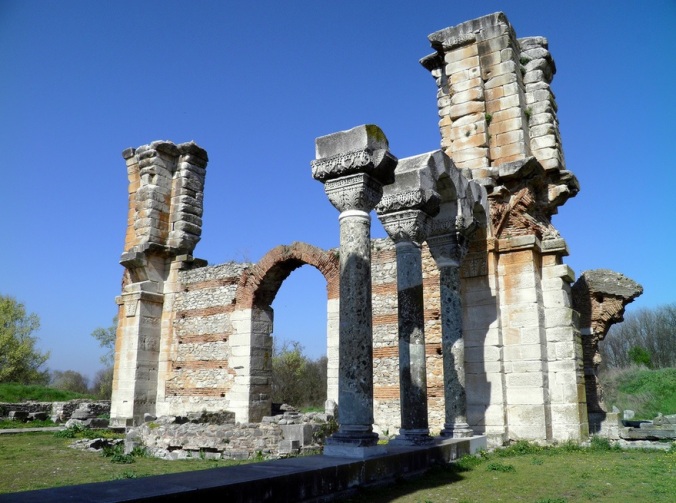“Go therefore and make disciples of all the nations…teaching them to observe all that I commanded you, and lo, I am with you always, even to the end of the age” (Matthew 28:19-20, NASB).
——————–
Contents:
1) Thanksgiving and Singing (David Maravilla)
2) A Greased Pole (Ken Green)
——————–

-1-
Thanksgiving and Singing
David Maravilla
Enter into His gates with thanksgiving, And into His courts with praise. Be thankful to Him, and bless His name. For the LORD is good; His mercy is everlasting, And His truth endures to all generations (Psa. 100:4-5).
As God’s people, we have many reasons to be thankful. What is the correct way for us to voice our thanks to God? Prayer is usually the answer, but the Bible reveals that thanksgiving through song is just as valid as giving thanks through prayer.
Thanksgiving Through Song
The two most famous New Testament passages about singing discuss thanksgiving. Paul wrote, “Let the word of Christ dwell in you richly in all wisdom, teaching and admonishing one another in psalms and hymns and spiritual songs, singing with grace in your hearts to the Lord” (Col. 3:16). Singing “with grace” means to sing with “gratitude” (N.I.V) or “thankfulness” (N.A.S.B). Therefore, singing is obviously a way to give thanks.
Likewise, singing and thanksgiving are connected by this passage: “Speaking to one another in psalms and hymns and spiritual songs, singing and making melody in your heart to the Lord, giving thanks always for all things to God the Father in the name of our Lord Jesus Christ” (Eph. 5:19-20).
Singing or Praying?
Some think Paul changed the focus from singing to prayer in these passages when he mentioned thanksgiving in Jesus’ name. Indeed, without the preceding verse, Colossians 3:17 sounds like a reference to prayer: “And whatever you do in word or deed, do all in the name of the Lord Jesus, giving thanks to God the Father through Him.” Likewise, Ephesians 5:20, apart from verse 19, could be mistaken for a description of prayer: “Giving thanks always for all things to God the Father in the name of our Lord Jesus Christ.”
However, these passages are about singing, not prayer. Even in passages about singing, we tend to think of prayer when we see “giving thanks” in connection with “in the name of the Lord” because we have not fully considered that singing is as legitimate a way of giving thanks to God in Jesus’ name as prayer is. We have developed a tradition of stating aloud that our public prayers are “in Jesus’ name.” However, as Paul wrote here, singing, and everything else we do, must be “in the name of the Lord,” regardless of whether we state it every time.
Similar Actions
Though we distinguish between “acts of worship,” it is clear that various actions can serve the same purpose. In this case, thanksgiving in Jesus’ name can be done through song as well as prayer. Though prayers and songs are, by definition, not the same thing, similarities exist. The difference is simply music—remove the melody, harmony, and timing from many hymns and what remains is a prayer. We can give thanks through song or prayer, and God takes one as seriously as he does the other.
Similar Seriousness
We take prayer seriously. Those who arrive late to services do not usually come down the aisle to find a seat during a prayer. People do not habitually walk to the bathroom in the middle of a prayer, nor do deacons leave their seats to adjust the thermostat. We wait until the prayer is over to do some necessary things because we do not want to distract others. If thanksgiving through song is just as valid as thanksgiving through prayer, should we not show the same courtesy when singing? Whether our heads are bowed in prayer while the leader says, “Lord, we thank you for this day and all of its blessings,” or we joyfully sing “Lord of all to Thee we raise, This our hymn of grateful praise,” we are voicing our thanks to God in the way he prescribed. We must be reverent, regardless of the method used to give thanks.
— Via Truth Magazine, November 2007, Vol. LI, No. 11, p. 10
——————–

-2-
A Greased Pole
Ken Green
Ever tried to climb a greased pole? Even if you haven’t, you know that it’s almost impossible, even for an excellent climber in tip-top shape. For the rest of us it’s just downright impossible.
Well some have put salvation at the top of a greased pole and are constantly exhorting folks to climb right up and enjoy the benefits.
This extreme has probably been occupied as a reaction to the idea of escalator salvation. Once one steps onto the escalator, no effort is necessary whatever. One might expedite matters by taking a few steps, but one does not need to do so to reach the destination. Such is the view of those who hold to the doctrine of unconditional security. The doctrine is certainly contrary to many simple and clear passages in God’s word. Heb. 4:11 exhorts us to “be diligent to enter that rest.” Rev. 2:10 demands that we “be faithful unto death.” Escalator religion is contrary to sound doctrine.
Equally erroneous, however, is the concept of conditional insecurity. Perhaps such a doctrine has not been actively taught. But it has been accepted by way of default. I would think that the great assurance that is constantly given the faithful, striving, child of God should be administered in equal doses, at least, in our teaching as the warnings
against falling or drifting away from so great a salvation.
Even before the plan of salvation was consummated at the cross, the people of God expressed great assurance: “The fear of man brings a snare, But whoever trusts in the Lord shall be safe” (Prov. 29:25); “The Lord shall preserve you from all evil; He shall preserve your soul. The Lord shall preserve your going out and your coming in from this time forth, and even forever” (Ps. 121:7-8); “Surely goodness and mercy shall follow me all the days of my life; and I will dwell in the house of the Lord forever” (Ps. 23:6).
Do we who are privileged to live under a better covenant, established upon better promises, possess less confidence than the people of a darker age? May it never be!
Paul lived in the security of God’s love. Because life to him was Christ, he could declare confidently that to die was gain and to depart was to be with the Lord (Phil. 1:21-23; 2 Cor. 5:6-8). He could say this in spite of the fact that he had not reached perfection in this life (Phil. 3:12-16).
He exulted in the knowledge that a crown of life awaited him and all who love His appearing (2 Tim. 4: 8). Jude commends us all to the God who is able to keep us from falling (verse 24). Peter declares that “if” (that’s conditional, folks), “you do these things you will never stumble; for so an entrance will be supplied to you abundantly into the everlasting kingdom of our Lord and Savior Jesus Christ” (2 Peter 1:10-11).
Let us examine ourselves. Are we preaching a greased pole salvation? Are we guilty of binding “heavy burdens, hard to bear” when we ourselves will not move them with one of (our) fingers” (Mt. 29:3)? Let us balance warning with consolation that the committed and submissive Christian might be motivated to sing with rejoicing and praise: “Blessed assurance, Jesus is mine. Oh what a foretaste of glory divine. Heir of salvation, purchase of God; Born of His Spirit, washed in His blood.”
— Via Searching the Scriptures, June 1991, Volume XXXII, Number 6
——————–
The Steps That Lead to Eternal Salvation
1) Hear the gospel, for that is how faith comes (Rom. 10:17; John 20:30-31).
2) Believe in the deity of Christ (John 8:24; John 3:18).
3) Repent of sins (Luke 13:5; Acts 17:30).
4) Confess faith in Christ (Rom. 10:9-10; Acts 8:36-38).
5) Be baptized in water for the remission of sins (Mark 16:16; Acts 2:38; 22:16; Rom. 6:3-4; Gal. 3:26-27; 1 Pet. 3:21).
6) Continue in the faith, living for the Lord; for, if not, salvation can be lost (Heb. 10:36-39; Rev. 2:10; 2 Pet. 2:20-22).
——————–
Tebeau Street
CHURCH OF CHRIST
1402 Tebeau Street, Waycross, GA 31501
Sunday services: 9:00 a.m. (Bible class); 10 a.m. & 5 p.m. (worship)
Wednesday: 7 p.m. (Bible class)
evangelist/editor: Tom Edwards (912) 281-9917
Tom@ThomasTEdwards.com
http://thomastedwards.com/go (Older version of Gospel Observer website without pictures, but back to March 1990)
http://tebeaustreetchurchofchrist.org/
http://ThomasTEdwards.com/audioser.html (audio sermon)




















